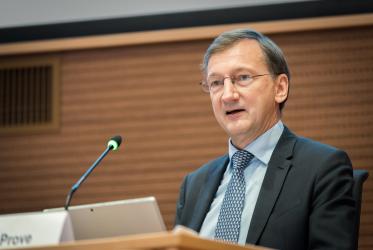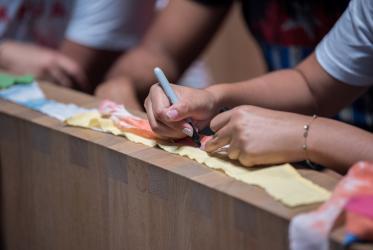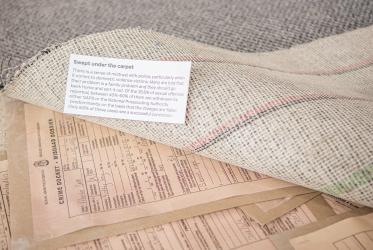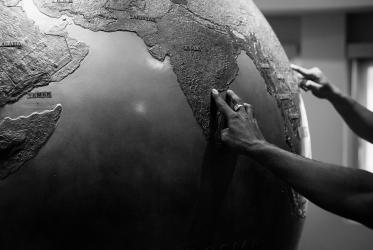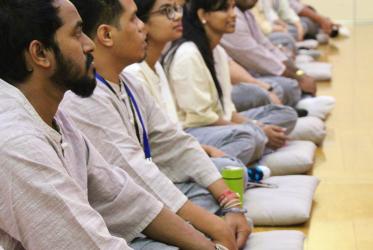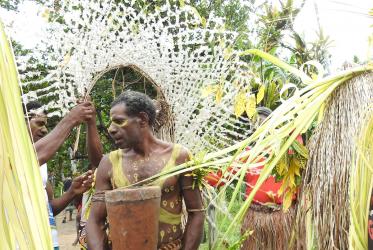Displaying 1 - 20 of 57
WCC interreligious journal focuses on “healing wounded memories”
16 February 2023
HIV and AIDS Civil Society Networks and the Faith Sector
Lessons Learnt from Strategic Engagement in India, Dominican Republic, Indonesia, and Jamaica
31 January 2023
Churches can address root causes of femicide—and webinar reveals how
01 December 2021
Webinar - Intergenerational conversation will commemorate 50 years of WCC’s interreligious inroads
01 July 2021
https://us02web.zoom.us/webinar/register/WN_dwi_li4JTI6FRzEaqGeqvw
WCC offers prayer during Japanese peace conference
11 March 2021
Rethinking Ecological Relationships in the Anthropocene era
11 - 13 February 2021
The cry of the Papuans in Indonesia
14 November 2019
“Economy of life” lifted up at special school in Indonesia
22 August 2019

